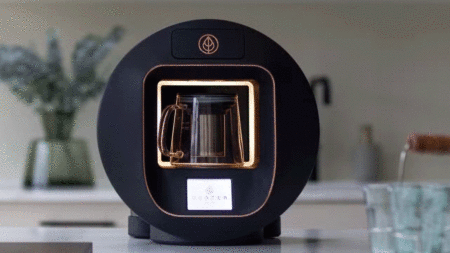With energy demand for residential air conditioning rapidly increasing day by day, a team of researchers from the National University of Singapore (NUS) has developed a membrane and water-based air-conditioner with the aim to take on the continually increasing global energy consumption and global warming risks. It can provide cool air without using any compressors and chemical refrigerants, making it possible to save on energy bills and cut off environment footprint as well. Despite the cooling feature, this novel system is also able to generate drinking water. The idea of using water as air cooling medium seems to be having the potential to change the future of air conditioners.
Professor Ernest Chua from the Department of Mechanical Engineering at NUS Faculty of Engineering explained the potential use;
Our cooling technology can be easily tailored for all types of weather conditions, from humid climate in the tropics to arid climate in the deserts. While it can be used for indoor living and commercial spaces, it can also be easily scaled up to provide air-conditioning for clusters of buildings in an energy-efficient manner. This novel technology is also highly suitable for confined spaces such as bomb shelters or bunkers, where removing moisture from the air is critical for human comfort, as well as for sustainable operation of delicate equipment in areas such as field hospitals, armoured personnel carriers, and operation decks of navy ships as well as aircrafts.
Also Read: 9 unique air-purifying paints that’ll freshen up your indoor environment
First it removes moisture from humid outdoor air using a paper-like material, and then cools the dehumidified air via a dew-point cooling system that uses water as cooling medium instead of environmentally harmful chemical refrigerants. Unlike traditional vapor compression-based air-conditioners that release hot air to environment, it discharges a cool air stream to limit effects on climate. This low-energy, eco-friendly air-conditioning system can also produce about 12 to 15 liters of drinking in a day.
Suitable for both indoor and outdoor use, it is a portable air-conditioning system that can be customized for all types of weather conditions. According to the Associate Professor Chua, it is a cost-effective cooling solution that’s eco-friendly and sustainable too. The research team claims this system consumes about 40 per cent less electricity than standard compressor-based air-conditioners.
Currently, NUS researchers are working to refine its design and incorporate smart features such as pre-programmed thermal settings based on human presence and real-time tracking energy efficiency. This project is supported by the Building and Construction Authority and National Research Foundation Singapore.
We’ve also featured a low-energy, water-based air conditioner designed by an Indian architecture firm before. However, it is a completely different method that makes use of terracotta pots and water to cool air.
Follow Homecrux on Google News!




